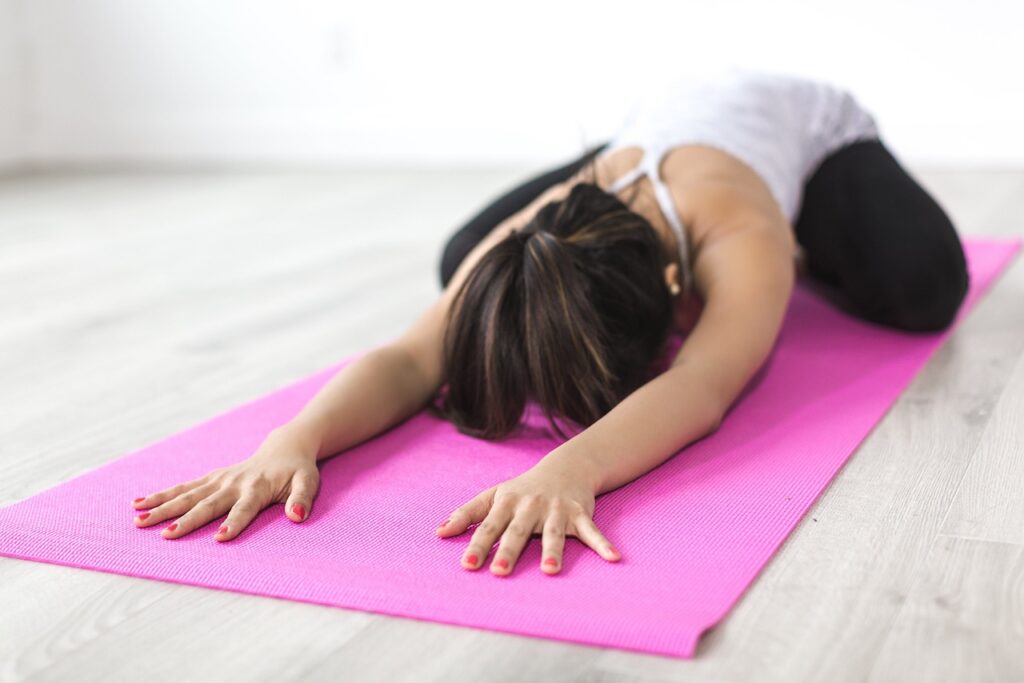
Yoga has become an increasingly popular activity in recent years, not only for physical fitness but also for its mental health benefits. One of the most significant benefits of yoga is its ability to reduce stress and promote mental well-being. In this article, we will explore the many benefits of yoga for stress relief and mental health.
What Really is Yoga?
Yoga is a practice that originated in ancient India and has been around for thousands of years. It involves a series of physical postures, breathing exercises, and meditation techniques that promote relaxation and focus. Yoga is a popular form of exercise for many people because it can be done anywhere, without any special equipment or clothing.
Focusing on the Breath
One of the primary reasons that yoga is so effective in reducing stress is that it focuses on the breath. Breathing exercises, or pranayama, are a crucial part of the yoga practice. These exercises involve deep, slow breathing, which can help to calm the nervous system and reduce anxiety. By focusing on the breath, yoga practitioners can learn to control their thoughts and emotions, leading to a more peaceful state of mind.
Stress Relief
In addition to breathing exercises, the physical postures, or asanas, in yoga can also be very beneficial for stress relief. Yoga postures are designed to stretch and strengthen the muscles, increase flexibility, and improve posture. These physical benefits can help to reduce tension in the body, which can contribute to feelings of stress and anxiety.
Mindfulness
Another way that yoga can promote mental well-being is through its focus on mindfulness. Mindfulness is the practice of being fully present and aware of one’s thoughts and feelings, without judgment. By practicing mindfulness during yoga, practitioners can learn to be more present in their daily lives, which can lead to a greater sense of peace and happiness.
Studies Show Yoga Improves Mental Health
Studies have shown that yoga can be an effective tool for reducing stress and improving mental health. For example, a study published in the Journal of Alternative and Complementary Medicine found that a 12-week yoga program was associated with significant reductions in perceived stress and anxiety among participants. Another study published in the International Journal of Yoga found that a 10-day yoga retreat was associated with improvements in mood, self-compassion, and mindfulness.
Yoga has also been shown to be effective in treating specific mental health conditions, such as depression and anxiety disorders. A review of 23 studies on the effects of yoga on depression and anxiety found that yoga was associated with significant reductions in symptoms of both conditions. Another study published in the Journal of Clinical Psychology found that a yoga program was more effective in reducing symptoms of generalized anxiety disorder than a stress management program.
The Different Levels of Intensity
One of the reasons that yoga is so effective for mental health is that it can be tailored to individual needs. Yoga can be practiced at different levels of intensity, from gentle and restorative to more challenging and invigorating. This means that people of all ages and fitness levels can benefit from yoga, regardless of their current physical or mental state.
In addition to its mental health benefits, yoga has also been shown to have physical health benefits. Regular yoga practice can help to reduce blood pressure, improve cardiovascular health, and strengthen the immune system. Yoga has also been shown to be effective in reducing chronic pain and improving sleep quality.
You Should Try It!
If you are interested in trying yoga for stress relief and mental health, there are many resources available to help you get started. Yoga classes are offered at many gyms and community centers, and there are also many online resources, such as YouTube videos and mobile apps, that can guide you through a yoga practice.
When starting a yoga practice, it is important to remember that it is a journey, not a destination. Like any form of exercise or mental practice, it takes time and commitment to see results. It is also important to listen to your body and to choose a practice that is appropriate for your current physical and mental state.